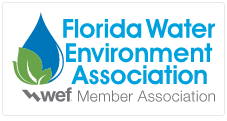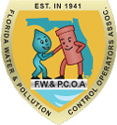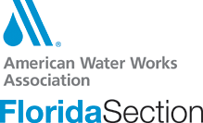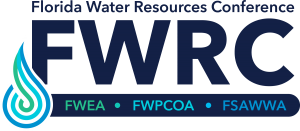Category Archives: Current News
Interior Department Provides $325M to Increase Access to the Outdoors
Investment from the Land and Water Conservation Fund is largest in 45 years;
Florida to receive more than $15M
Laura Daniel-Davis, acting deputy secretary for the U.S. Department of the
Interior, announced the distribution of $325 million from the Land and Water
Conservation Fund (LWCF) Stateside Assistance Program to all 50 states, U.S.
territories, and the District of Columbia—the largest annual distribution from the
program since 1979. Investments from the LWCF are helping support
the ”America the Beautiful” initiative by funding locally led outdoor recreation
and conservation projects that protect and enhance access to America’s great
outdoors.
In 2024, Florida will receive $15, 748, 651. “The administration is deeply committed
to ensuring that all Americans, nomatter where they live or how much money they earn,
can enjoy the outdoors,”said Daniel-Davis. “The Land and Water Conservation Fund is
helping to deliver on that commitment through locally led and community-driven projects that are
creating greener neighborhoods, more recreational opportunities, and improved
access to nature.”
The LWCF was established by Congress in 1964 to fulfill a bipartisan commitment
to safeguard natural areas, water resources, and cultural heritage, and provide
recreation opportunities to all Americans. The fund helps strengthen
communities, preserve history, and protect the national endowment of lands and
waters. Since its inception in 1965, the LWCF State and Local Assistance Program
has funded more than 46,000 projects in every county in the U.S.
In 2020, Congress permanently funded the LWCF at $900 million per year with
wide bipartisan support through the Great American Outdoors Act, which was
signed four years ago.
At no cost to taxpayers, the LWCF, administered by the National Park Service
(NPS), supports increased public access to and protection for federal public lands
and waters—including national parks, forests, wildlife refuges, and recreation
areas—and provides matching grants to tribal, state, and local governments to support the acquisition and development of land for public parks and other
outdoor recreation sites.
“Communities in every corner of the nation have benefited from the Land and
Water Conservation Fund’s incredible investments,” said Chuck Sams, director of
NPS. “With increased investment into locally led efforts, the Land and Water
Conservation Fund continues to represent the best of America while putting
communities first.”
Allocations within the LWCF Stateside Assistance Program for each state and
territory are determined through a formula set in the Land and Water
Conservation Fund Act and are largely population-based. States and territories
further allocate these funds to local projects. This fiscal year, NPS provided
guidance to states to work more closely with tribes and underserved communities
during the development of their statewide comprehensive outdoor recreation
plans.
Research Outlines How Climate Change Impacts Water and Wastewater Systems in Rural Communities Across US
The Pacific Institute Livelihoods Knowledge Exchange Network (LiKEN) and Rural Community
Assistance Partnership Inc. (RCAP) has released new research outlining how climate change
impacts are leading to devastating consequences for water and wastewater systems in rural
communities across the United States. The report also introduces an innovative community-centered
framework to assist leaders in rural communities to build equitable water and wastewater systems
that will be resilient to climate change in the future. The framework can inform policies and can be
adapted and scaled to be used in different rural areas.
The report, “Water and Climate Equity in Rural Water Systems in the United States,” highlights
where a concentration of homes lack access to water and sanitation services. The research
emphasizes how legacies of injustice, disproportionate rates of poverty, and insufficient financial and
technical resources in some rural communities create challenges. The report also underscores that
climate change will continue to exacerbate many existing water challenges, including water quality,
affordability, availability, and access, as well as aging infrastructure and disaster recovery.
“Water and climate risks and vulnerabilities tend to cluster in places where racial and financial
inequalities also cluster,” said Dr. Shannon McNeeley, senior researcher and water and climate
equity lead of the Pacific Institute.
“Decision makers must grapple with a series of complex realities when developing strategies to build
resilient water systems that are equitable,” said Laura Landes, associate director of research and
data at RCAP. “It’s critical that solutions in rural communities are rooted in local knowledge and
center the needs and perspectives of local communities.”
“It’s a privilege to listen to the insights of people at the frontlines of these challenges,” said Dr. Betsy
Taylor, executive director of LiKEN. “In many ways, we saw a grim picture, but we also found
remarkable openings for durable solutions rooted in local creativity, knowledge, and leadership, with
respectful support from experts, civil society, and government sectors.”
The report highlights key points for the rural U.S.:
~ Extreme flooding events lead to power and water outages, erosion and increased risk of
landslides, mobilizing of pollutants, polluting of water sources, and contamination of rural
community drinking water systems.
~ Flooding poses a particular risk to decentralized rural water systems and private wells.
~ Drought leads to rural groundwater declines through increased reliance on groundwater
combined with lack of recharge.
~ Wildfires are increasing in extent, duration, and severity, and rural water is impacted by
increased erosion, landslides, sediment, and contamination, making water resources and
drinking water unsafe.
~ Extreme temperatures harm rural water by decreasing water availability, as well as
contributing to declining water quality.
~ While significant barriers and challenges exist related to inequities, funding, and technical or
managerial capacity, existing community-based social, natural, and physical assets provide
opportunities to build on inherent community resilience for achieving equitable, climate-
resilient rural water.
~ Tailored and easily accessible technical assistance and tools can support rural communities
in achieving equitable, climate-resilient water and sanitation systems.
Based on findings from this research, the scalable solution model created prioritizes integrating
diverse types of technical and local knowledges to analyze and help solve water challenges. A water
and climate resilience framework was designed to be adapted for use in other rural areas, while also
informing policy. It provides a way to understand water and wastewater systems in their local and
regional contexts. It can also bring diverse stakeholders together to develop solutions that integrate
engineering, economic, ecological, cultural, and historical assets.
For more information on the project visit https://pacinst.org/publication/water-and-climate-equity-in-
rural-water-systems-in-the-united-states/.




